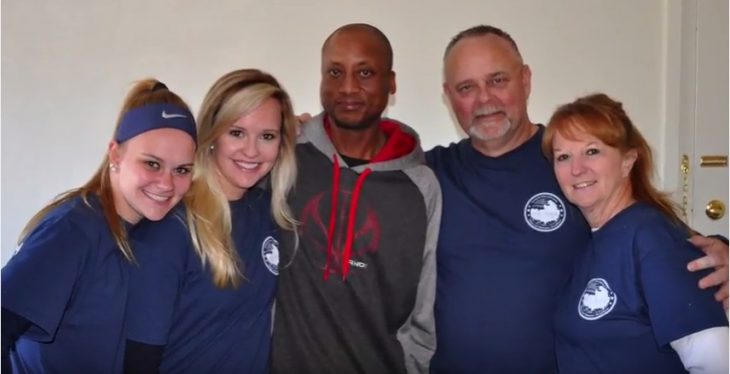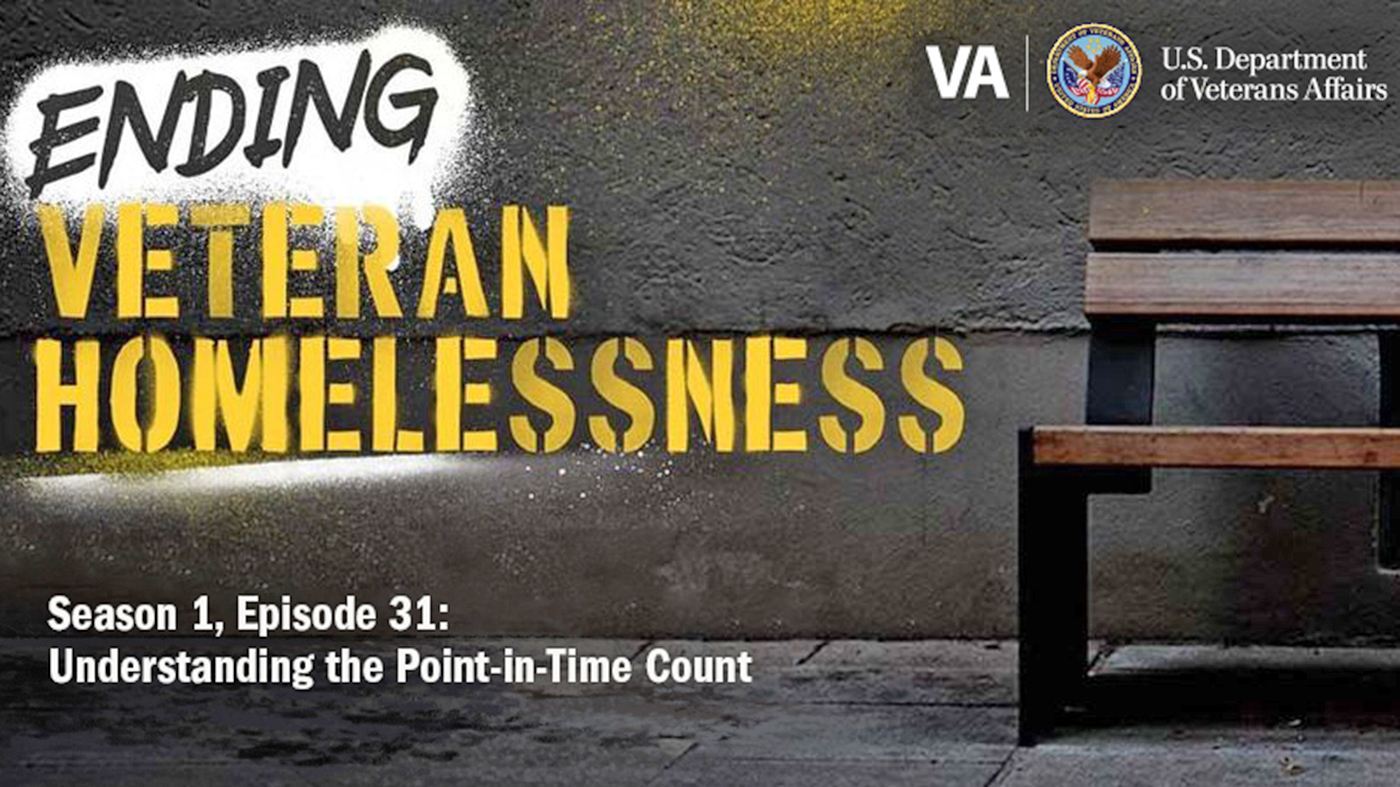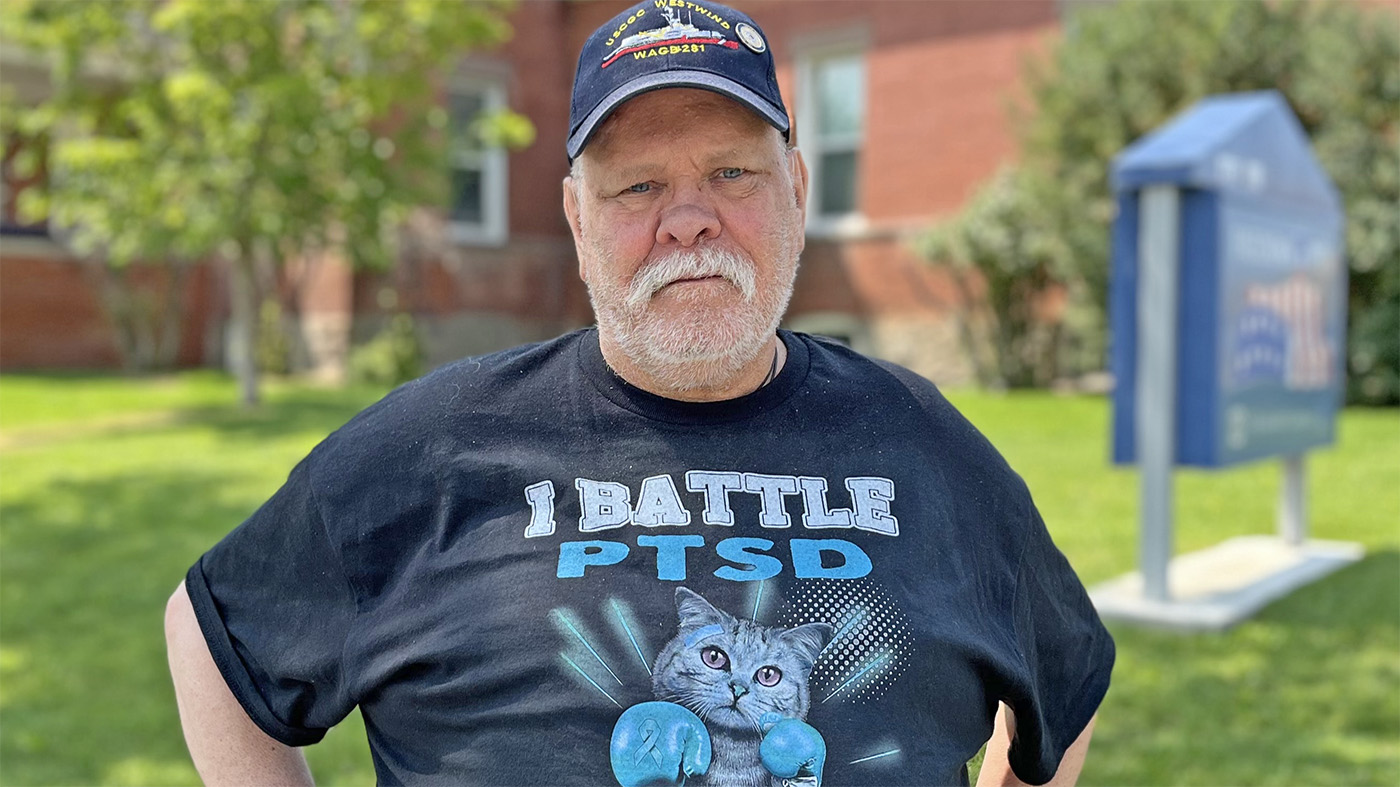Although he was delighted to learn about the important work of VA and its parnters to help homeless Veterans move into permanent housing several years ago, Veteran Rick Ecker was troubled when he heard that Veterans sometimes have no furniture when they move in. So last summer, he founded the nonprofit Vets on Track Foundation in Virginia to make Veterans’ transition out of homelessness more comfortable. Through the foundation’s Fresh Start program, local Veterans exiting homelessness receive donated furniture and other household items, like bed linens and dishes, for their new homes.
For one Veteran helped by Vets on Track, those simple items make all the difference: “Vets on Track … came out personally and looked around my empty apartment and took the time to really understand my needs and treated me with dignity and respect,” said Norman, a former U.S. Army National Guardsman who found himself living in a homeless shelter years after his service. “They made my apartment look like a home. Without them it would have [taken] a long time for me to purchase my home needs. … ‘The journey of a thousand miles begins with one step,’ and Vets on Track has taken that step.”
Due to the tireless efforts of community members like Ecker and the coordinated work of partners across the country, the number of Veterans who are homeless has dropped by 47 percent since 2010. This success is being realized in communities throughout the United States; as of May 2017, more than 40 communities and three states have effectively ended Veteran homelessness, with more states and communities announcing this accomplishment every month.
The growing Vets on Track Foundation is able to make a difference for Veterans when people come together to help.
Ecker had been renting U-Haul trucks to pick up and drop off donated items, but over time, the rental costs and the burden on volunteers started to become too much. That’s when the Marine Corps Law Enforcement Foundation (MC-LEF) stepped in to assist: within two days of hearing about Rick’s predicament, the foundation had committed to purchasing Vets on Track’s first moving truck.
“I’m overwhelmed with gratitude — I just started crying when I read the message,” Ecker said. “For someone to have responded that quickly, it really showed how much they believe in what we are doing.” Thanks to the MC-LEF, he now has a truck and will now be able to dedicate more resources helping Veterans in his area.
The community support doesn’t stop there — thanks to local businessman, Rick Groux, owner of JR Warehouse, LLC, Vets on Track has been given 3,000 square feet of wharehouse space for free for the next three months, with consideration for additional months. This space will allow Ecker to organize his current stock donations, as well as accept more.
With the help of partnering organizations and volunteers, Vets on Track facilitates an average of five move-ins a month. Ecker is looking for even more volunteers to meet one on one with the Veterans he serves to discuss what furniture and supplies they need — and to assess the living space and the surrounding neighborhood — in preparation for move-in day. But Vets on Track doesn’t stop there. Last winter, the foundation delivered Christmas trees and other holiday decorations to Veterans who receive housing assistance through Friendship Place, a nearby homeless services organization.
Ecker and his team have furnished 48 homes — and with an expansion of Vets on Track in the works, he expects to furnish even more. Ecker is looking to open regional offices and community warehouses in nine areas across the country. With this cross-country expansion, donations could be collected easily from anywhere in the United States. His hope is that with more offices and more volunteers to staff them, “no matter where a Veteran is in need, we can reach them.”
The work to end Veteran homelessness will not be done until every Veteran is stably housed. Thanks to the dedication of organizations like Ecker’s, we are getting closer to that number every day. For more information about Vets on Track Foundation, watch the organzition’s YouTube video or visit www.vettrack.org.
To learn more about how you can help prevent and end Veteran homelessness, please visit the VA Homeless Stakeholder webpage.
This article was submitted by VA’s Homeless Veterans Outreach and Communications Office, whose mission is to improve access to VA care among homeless and at-risk Veterans by expanding awareness of VA programs for that subset of the Veteran population. The office also helps to develop collaborative relationships with organizations that can help homeless Veterans access employment opportunities, affordable housing, and move-in essential items, which all increase the likelihood that they will remain stably housed after exiting homelessness.
Topics in this story
More Stories
William Snow, senior program specialist at HUD, explains how the Point-in-Time Count provides valuable data on Veteran homelessness.
VA permanently housed 47,925 homeless Veterans in fiscal year 2024, exceeding its goals for the third year in a row.
VA Housing First changed the life of Grady Kendall, Coast Guard Veteran, because it was there when life knocked him down.







Rick, I live in Baltimore and have a queen-sized bed set to donate (frame, two matching side tables, 3 matching lamps). How do I get it to you? Where do I take it?
Thank you Rick for you unwavering commitment to helping our brothers in arms. Its guys like you who step up when it really has to be done. I share your vision to help my brothers in the Coachella Valley in southern California. I see countless vets sleeping in the trees on the highway everyday and I need to help them transition to become independent again. No one ask or seeks to be homeless. With our summer just beginning, the temperature here has already climbed past 120 and it’s only going to get worse. Please give me whatever resources I can use to extend this service please. Thank you for your service and your commitment.
Steve Richards